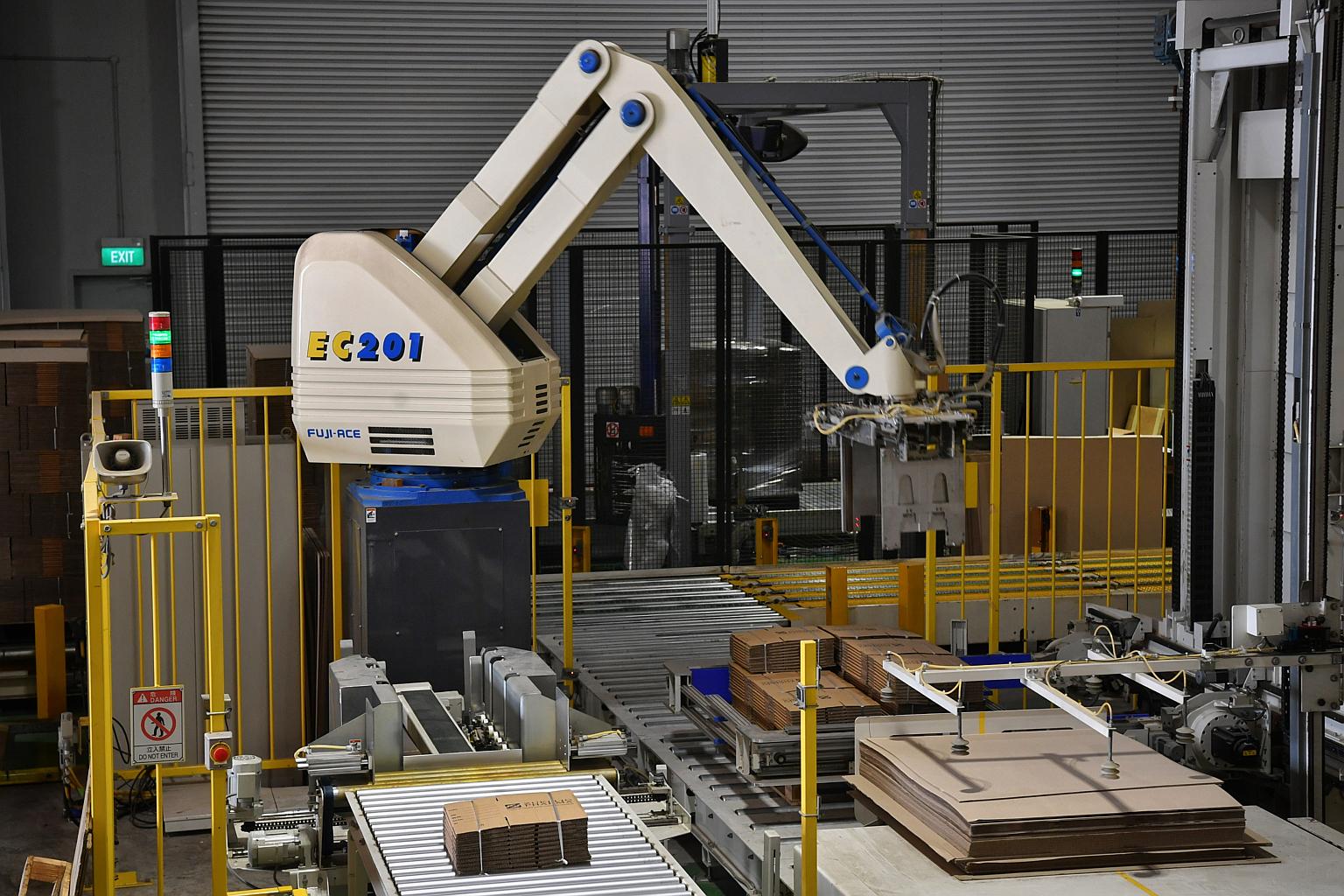Asean in good position to seize major shifts in future of work: DPM Heng
Sign up now: Get ST's newsletters delivered to your inbox

There is a need for countries to ride the next skills wave to take advantage of new business opportunities, said DPM Heng.
PHOTO: ST FILE
SINGAPORE - Asean is in a good position to contribute to, as well as benefit from, major shifts affecting the future of work such as the green transition, digitalisation and resilience of supply chains, said Deputy Prime Minister Heng Swee Keat.
“The future of work is intrinsically linked to the future economy,” he said, speaking virtually at the hybrid HR Tech Festival Asia 2022 and the opening of the Asean Future of Work Conference on Thursday (May 12).
For instance, South-east Asia can be alternative bases for advanced manufacturing to strengthen supply chain resilience. The region's blue carbon stock also has potential to create nature-based solutions for carbon removal.
DPM Heng added that there is a need for countries to ride the next skills wave to take advantage of these new business opportunities. While computer science and digital skills are part of the first wave, the next wave comprises green skills.
"In the past decade, the digital wave came upon us in a big way. The digital economy is now a key engine of growth," he said, adding that numerous digital tech companies have emerged, creating many good jobs and occupations, some of which were previously unheard of.
Many hawkers and micro-enterprises have also gone digital, showing how digital skills are now foundational to many jobs.
Countries should now seize the emerging green wave, said DPM Heng.
"Sustainability is an emerging engine of growth that is taking on greater momentum, and much more still needs to be done before countries can meet their net zero goals."
Just like digital literacy, green literacy may become a foundational skill for jobs of the future, with more green-collar jobs being created in more mature fields, such as sustainable finance and solar management.
There are also green-collar jobs being created in emerging areas such as hydrogen and tidewater architecture.
Green skills will continue to be defined and developed in the coming years, said DPM Heng, and it may be some time before a wider range of training pathways and appropriate salary premiums settle.
To ride the different industry waves, stakeholders like companies, workers and governments need to work in collaboration, he added.
The workforce will also need to collectively adapt to the changing construct of work, with evolving social norms and preferences of workers as a result of the Covid-19 pandemic.
While flexible workplaces are now here to stay, arriving at a hybrid work environment will require supervisors to ensure that business outcomes are not compromised and that such arrangements are not abused, said DPM Heng.
"To transition well, there needs to be mutual understanding, and some give and take between employers and workers... the shift towards greater flexible work arrangements will take time, and some iteration," he added.
Protection and social security will also have to be improved for platform workers, whose numbers have increased significantly due to the boom in e-commerce and food delivery.
For young job seekers, career guidance has to be strengthened, said DPM Heng.
"We will need to help them look beyond the more attractive take-home pay in the near term, and explore other pathways that could better nurture their skills and provide better livelihoods in the longer term," he said.
The Asean Future Of Work Conference is now in its third run, and took place as part of the HR Tech Festival Asia, which started on Tuesday and will run till Friday.
Speakers from regional governments, unions and the private sector took part in panel discussions on current work-related topics, such as the adoption of artificial intelligence, flexible work arrangements and the strengthening of labour protection for platform workers like delivery workers, private-hire car drivers and taxi drivers.
The platform economy has grown significantly due in part to a boom in e-commerce and food delivery, said DPM Heng, underscoring the need to improve platform workers’ protection and social security.
Dr Uma Rani, senior economist at the research department of the International Labour Organisation, said there are platforms that classify their workers as self-employed, even though they should be classified as employees.
She was speaking at a panel discussion on strengthening labour protection for platform workers.
“Because of that classification, a lot of labour and social protection benefits are not accrued to the platform workers,” she said.
Ms Yeo Wan Ling, director of NTUC U Women and Family and U SME, said there is also a need to ensure that employees get fair consideration for promotions and bonuses, even with flexible work arrangements.
“Hopefully, through advocacy and tripartite partnerships with employers and the Ministry of Manpower, we can come up with more clarity for guidelines for measurements and key performance indicators to ensure fair treatment,” said Ms Yeo during a panel discussion on successful flexible work arrangements.


